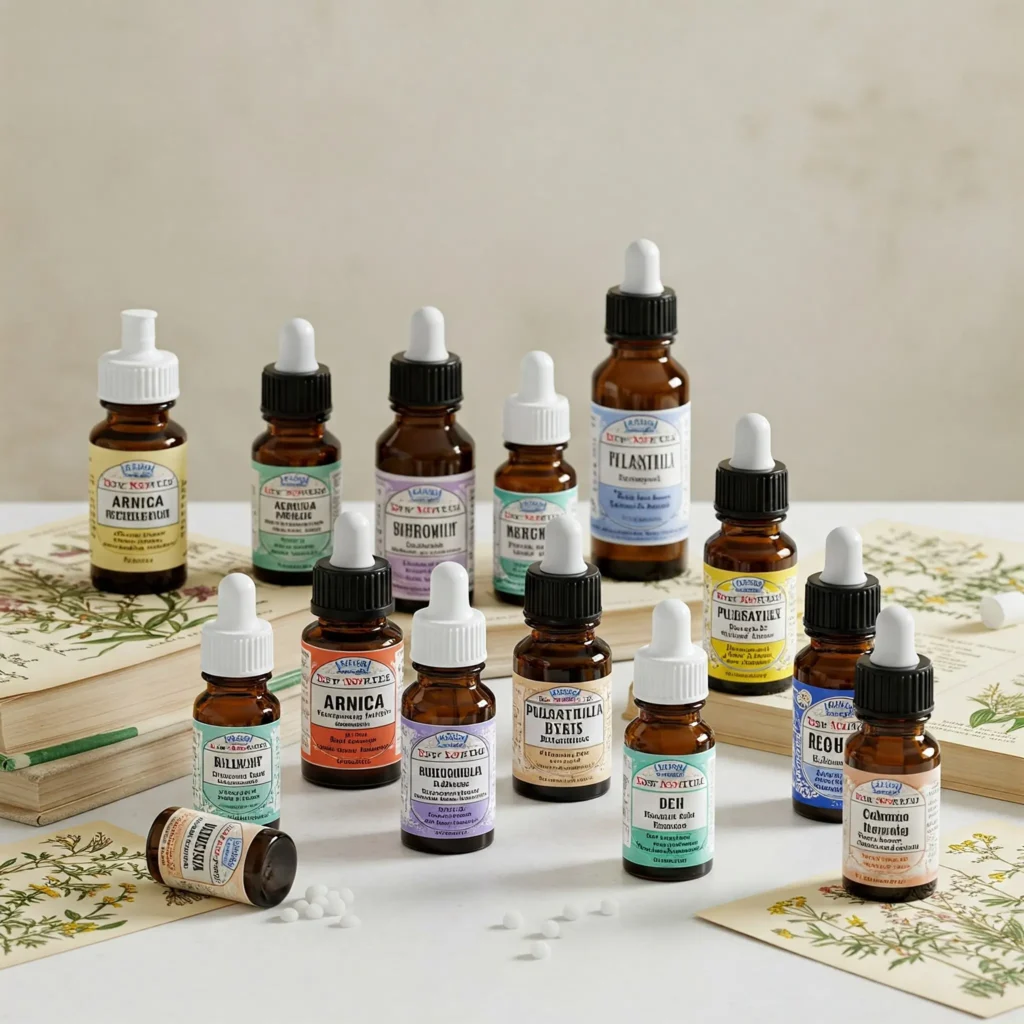Homeopathy for Seasonal Allergies: Finding Natural Relief
Introduction:
Spring’s arrival brings vibrant blooms and warmer weather, but for many, it also heralds the dreaded return of seasonal allergies. Sneezing, itchy eyes, a runny nose – these symptoms can make enjoying the season difficult.1 If you’re looking for a natural approach to allergy relief, homeopathy may offer a gentle and effective solution.2
Understanding Seasonal Allergies
Seasonal allergies, also known as allergic rhinitis or hay fever, occur when your immune system overreacts to airborne substances like3 pollen from trees, grasses, or weeds.4 When these allergens enter your body, your immune system releases histamine, which causes those familiar allergy symptoms.5

How Homeopathy Can Help
The core principle of homeopathy is “like cures like.” This means that if a substance can cause particular symptoms in a healthy person, a very small dose of that same substance can be used to treat someone experiencing similar symptoms. In the case of allergies, homeopathic practitioners carefully match the remedy to the specific symptoms each person experiences, resulting in a personalized approach to treatment.

Common Homeopathic Remedies for Allergies
It’s important to consult with a qualified homeopath for personalized treatment. However, here are some commonly used remedies for seasonal allergies:
- Allium cepa: For watery eyes, a runny nose with clear discharge, and sneezing.10 Symptoms often worsen in warm rooms.11 Think of it like a mild onion effect.
- Euphrasia: For burning, itchy eyes with profuse watery discharge, and a runny nose with thick, yellow discharge. Eye symptoms are often more prominent than nasal symptoms.
- Nux vomica: For sneezing, a stuffy nose, irritability, and sensitivity to drafts.12 Symptoms are often worse in the morning and better in the open air.13 This remedy is often helpful for those who feel generally “stuffed up.”
- Pulsatilla: For a runny nose with thick, yellow or green discharge, and mild eye irritation. Symptoms may be better in the open air and worse in warm rooms. This remedy is often suited to individuals who are tearful and seek comfort.
- Sabadilla: For violent sneezing, a runny nose with clear discharge, and itchy eyes.14 Symptoms may be triggered by exposure to pollen.

Benefits of Homeopathy for Allergies
- Natural and Gentle: Homeopathic remedies are highly diluted, making them gentle and safe for most people, including children and pregnant women (always consult with a healthcare professional).15
- Personalized Treatment: Remedies are chosen based on individual symptoms, leading to more targeted and effective relief.16
- Addresses the Underlying Cause: Homeopathy aims to stimulate the body’s self-healing abilities, potentially providing long-term relief rather than just suppressing symptoms.17
- Few Side Effects: Due to the high dilutions, homeopathic remedies are generally considered to have minimal side effects.18
Tips for Managing Seasonal Allergies
- Consult a Homeopath: For personalized treatment, consult with a qualified homeopathic practitioner. They will take a detailed case history to determine the most appropriate remedy for you.
- Avoid Triggers: Try to identify and avoid your specific allergy triggers as much as possible. This might involve staying indoors during peak pollen times, using air purifiers, and washing bedding frequently.
- Support Your Immune System: Maintain a healthy diet, get enough sleep, and manage stress to support your immune system.
- Stay Hydrated: Drinking plenty of water can help thin mucus and relieve congestion.19
When to Seek Conventional Medical Care
While homeopathy can be effective for many people, it’s important to seek conventional medical care if you experience severe allergy symptoms, such as difficulty breathing, wheezing, or swelling of the face or throat. These could be signs of a serious allergic reaction requiring immediate attention.
Conclusion
Seasonal allergies can be a nuisance, but they don’t have to control your life. Homeopathy offers a natural and personalized approach to allergy relief.20 By consulting with a qualified homeopath and taking proactive steps to manage your symptoms, you can find relief and enjoy the beauty of each season.
(Have you tried homeopathy for allergies? Share your experiences in the comments below!)
Disclaimer: This article is for informational purposes only and does not constitute medical advice. Please consult with a qualified healthcare professional before starting any new treatment,21 including homeopathy, especially if you have any underlying health conditions or are taking other medications. Homeopathy should not be used as a substitute for conventional medical care in cases of severe or life-threatening allergic reactions.
For General Information on Homeopathy:
- National Center for Complementary and Integrative Health (NCCIH): https://nccih.nih.gov/health/homeopathy – A good overview of homeopathy from a reputable source. (Place this link near your initial explanation of homeopathy.)
- Homeopathic Pharmacopoeia of the United States (HPUS): https://www.hpus.com/ – Information about the official compendium of homeopathic medicines in the US. (Could be linked where you mention homeopathic remedies.)
For Information on Allergies:
- National Institute of Allergy and Infectious Diseases (NIAID): https://www.niaid.nih.gov/ – A reliable source for information on allergies and allergic diseases. (Link this early in the article when you discuss seasonal allergies.)
- American Academy of Allergy, Asthma & Immunology (AAAAI): https://www.aaaai.org/ – Provides information on allergy symptoms, diagnosis, and treatment. (Could be linked in the section on managing allergies.)


